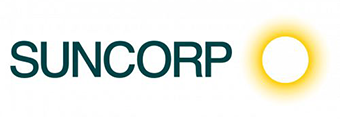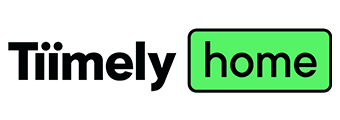A property's rental yield is the difference between its market value and the rental income it produces, expressed as a percentage. The higher the percentage, the greater the expected cash flow and return on investment.
If you want to boost your investment property's returns, here are some expert tips to make it stand out and boost your rental yield.
But first, what is good rental yield?
A healthy rental yield is generally between 3% to 5% depending on the property's condition and location. But that's not always the case.
In areas with high property prices and affordable rental costs, rental yields will naturally be lower, while areas with low property prices and high rent costs will boast higher rental yields.
There are two ways to measure and consider rental yield:
-
Gross rental yield
Gross rental yield looks at the amount of rental income you receive measured against the market value of the property. -
Net rental yield
Net rental yield gives an estimate of your returns, taking into account ongoing expenses, compared to the market value of a property.
Typically, investors looking to maximise returns focus on net rental yield, as it reflects the property's true earning potential. You might think there's little an investor can do to improve their yield, but that's not necessarily the case.
"Whilst the ideal outcome for most landlords is to have a combination of property price growth coupled with rising income from tenants, there are other ways they can maximise this return," Little Real Estate regional manager Samantha Smith said.
Tip #1: Find good tenants
"Don't underestimate the value of quality tenants." Ms Smith said.
"They minimise wear and tear on your property and tenants who consistently pay on time provide peace of mind helping a landlord better manage their finances."
Securing good, long-term tenants can mean fewer advertising costs and vacancy periods, but isn't always simple.
"Ensure your property manager has an effective screening process to get a quality tenant from the get-go," Ms Smith said.
Tip #2: Stay on top of maintenance
Just like you would maintain your home, maintaining your investment property can significantly bolster your returns and help avoid large expenses down the line.
Addressing small problems, like leaking taps, broken door handles, and temperamental air conditioners, can keep tenants happy and reduce the risk of expensive repairs later.
Ms Smith suggests property investors create a maintenance fund dedicated to repairs, allowing them to address issues with the property in a financially painless manner.
Additionally, vacancy periods can provide an opportunity to freshen up a property. Repainting walls and stain treating carpet between the time one tenant moves out and another tenant views a property can bolster its appeal.
"A proactive approach ensures your property value remains, justifies a higher rent, and also attracts tenants who want to stay," Ms Smith said.
Tip #3: Assess your home loan lender
Boosting your rental yield is equally about bolstering rental income and reducing costs, and one of the largest costs facing many property investors is their mortgage.
By shopping around for a topnotch investment home loan, investors can reduce their mortgage repayments and thereby free up cash flow and bolster rental returns.
"Consider regularly consulting with financial experts to ensure you are getting the best product and returns available," Ms Smith said.
In the market for a new investment mortgage? Check out some of the market's most competitive:
| Lender | Home Loan | Interest Rate | Comparison Rate* | Monthly Repayment | Repayment type | Rate Type | Offset | Redraw | Ongoing Fees | Upfront Fees | Max LVR | Lump Sum Repayment | Additional Repayments | Split Loan Option | Tags | Features | Link | Compare | Promoted Product | Disclosure |
|---|---|---|---|---|---|---|---|---|---|---|---|---|---|---|---|---|---|---|---|---|
5.94% p.a. | 6.28% p.a. | $2,978 | Principal & Interest | Variable | $0 | $530 | 90% |
| Disclosure | |||||||||||
6.04% p.a. | 5.95% p.a. | $3,011 | Principal & Interest | Variable | $0 | $0 | 80% | 100% owned by Commbank |
| Disclosure | ||||||||||
6.09% p.a. | 6.11% p.a. | $3,027 | Principal & Interest | Variable | $0 | $350 | 60% | |||||||||||||
8.82% p.a. | 8.87% p.a. | $3,959 | Principal & Interest | Variable | $0 | $0 | 90% | |||||||||||||
6.04% p.a. | 6.05% p.a. | $3,011 | Principal & Interest | Variable | $0 | $0 | 80% | |||||||||||||
6.09% p.a. | 6.13% p.a. | $3,027 | Principal & Interest | Variable | $0 | $530 | 90% |
| Promoted | Disclosure |
Tip #4: Plan simple renovations and updates
While forking out money to improve your property may sting, the rewards can be worth it. Improving your property is one of the biggest things you can do to increase rental income and yield.
By replacing an outdated kitchen to one that's fully functional with common mod cons, like a dishwasher or an induction stovetop, can attract quality tenants and allow for a higher rent to be charged.
Likewise, updating a bathroom, installing heating and cooling appliances, or simply repainting walls, replacing worn flooring, and modernising fitting and fixtures can make a huge impact.
Tip #5: Make the most of tax deductions
Like any other income, rental income is taxable. But, by making the most of deductions available, a property investor can minimise the amount of tax they're liable to pay.
Investors can claim immediate deductions (e.g., advertising costs, land tax) and depreciation on property assets (e.g., appliances, fixtures) over time. By deducting costs, property investors can minimise their tax bill and increase their rental yield.
"A tax depreciation schedule shows the eligible deductions you can claim for an investment property and it's essential that your property manager has set this up for you," Ms Smith said.
Tip #6: Get pet friendly
Renters often value properties that accept their furry friends, and allowing pets could make yours more attractive and justify higher rent.
You've probably heard of DINKs (dual income, no kids). They're households that generally have more disposable cash and live more luxurious and less settled lifestyles, perhaps renting for longer while they focus on other things. There's also an apparent growing phenomenon of DINKWAD households (dual income, no kids, and a dog).
Allowing pets into your rental could help increase the desirability of your property among DINKWADs and families with pets, often in conjunction, your rental yield. This might particularly be the case if your property is in a premium area or capable of attracting a premium rent.
Though, it's important to note that many states and territories don't allow property investors to deny pets in their rental property without a valid reason.
Tip #7: Regularly review the rent
Finally, perhaps one of the most impactful ways a property investor can ensure they're getting the best rental yield available to them is to ensure the rent they charge is in line with the broader market.
"The rental market is ever changing so you need to make sure your rent is competitive," Ms Smith said.
"It's essential your property manager is reviewing current data and they should be assessing market trends and considering the property itself when providing you with recommendations.
"Falling behind on market trends and prices can see you miss out on a lot of rental yield over time."
Article originally written by Gerv Tacadena in 2022. Last updated by Brooke Cooper.
Image by Freepik
Collections: Property Investment How to's Home improvement









Share